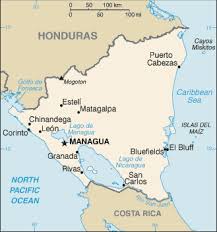 On Sept. 18 the US Central Intelligence Agency (CIA) released a number of classified articles from its in-house journal, Studies in Intelligence, including an article about "Dark Alliance," a 1996 series in the San Jose Mercury News that linked the CIA-backed Nicaraguan contra rebels to the sale of crack in South Central Los Angeles in the 1980s. Other US media, notably the New York Times, the Washington Post and the Los Angeles Times, harshly criticized the series' author, investigative reporter Gary Webb, noting, and often exaggerating, flaws in his reporting. Webb lost his job at the Mercury News and was never employed by a major newspaper again; he was found dead on Dec. 10, 2004 in an apparent suicide.
On Sept. 18 the US Central Intelligence Agency (CIA) released a number of classified articles from its in-house journal, Studies in Intelligence, including an article about "Dark Alliance," a 1996 series in the San Jose Mercury News that linked the CIA-backed Nicaraguan contra rebels to the sale of crack in South Central Los Angeles in the 1980s. Other US media, notably the New York Times, the Washington Post and the Los Angeles Times, harshly criticized the series' author, investigative reporter Gary Webb, noting, and often exaggerating, flaws in his reporting. Webb lost his job at the Mercury News and was never employed by a major newspaper again; he was found dead on Dec. 10, 2004 in an apparent suicide.
The CIA journal article, by Directorate of Intelligence staffer Nicholas Dujmovic, described the initial public reaction to the series as a "nightmare" and "a genuine public relations crisis." Although the contras' links to cocaine trafficking had been reported previously, Webb's series had more effect, in part because it connected the contras to the explosion of crack use in African-American communities. It was also one of the first major stories to gain traction through circulation over the internet. Dujmovic attributed the popularity of "Dark Alliance" to "societal shortcomings." "We live in somewhat coarse and emotional times—when large numbers of Americans do not adhere to the same standards of logic, evidence, or even civil discourse as those practiced by members of the CIA community," he complained.
The CIA's response largely relied on "a ground base of already productive relations with journalists," Dujmovic wrote. The agency managed to discourage "one major news affiliate" from covering the story, and in another case it helped out a reporter by making "a rare exception to the general policy that CIA does not comment on any individual's alleged CIA ties." But to a large extent the mainstream media did the job on Webb without prompting from the CIA. The Los Angeles Times, for example, assembled a group of 17 reporters in what one member called the "get Gary Webb team." The group "put [Webb's series] under a microscope," another of the reporters, Jesse Katz, said in a 2013 radio interview. "And we did it in a way that most of us who were involved in it, I think, would look back on that and say it was overkill. We had this huge team of people at the L.A. Times and kind of piled on to one lone muckraker up in Northern California." The result of the media attack was a "success," according to Dujmovic, although only "in relative terms." (The Intercept, Sept. 25)
The story has never completely disappeared from public consciousness, however. A 1997 report by the CIA's then-inspector general, Frederick Hitz, confirmed the contras' link to drug trafficking, and a new story about contra drug dealing appeared in October 2013 in both the righ-twing US-based Fox television network and the left-leaning Mexican weekly Proceso. A feature film about Gary Webb, Kill the Messenger, is scheduled for release on Oct. 10.
From Weekly News Update on the Americas, September 28.
Graphic: Perry-Castañeda Library Map Collection







Recent comments
3 weeks 1 day ago
3 weeks 1 day ago
6 weeks 2 days ago
7 weeks 1 day ago
11 weeks 1 day ago
15 weeks 2 hours ago
19 weeks 7 hours ago
19 weeks 5 days ago
29 weeks 5 days ago
33 weeks 6 days ago